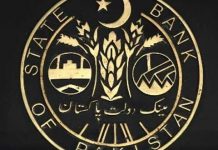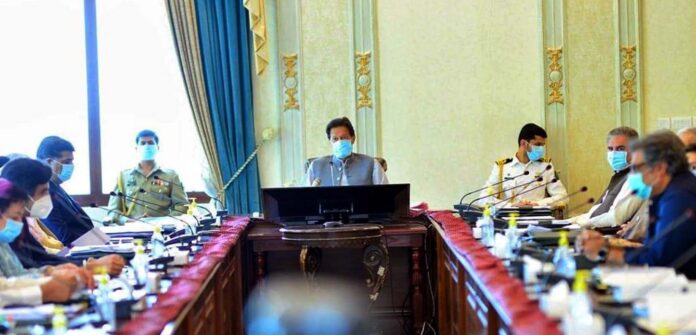ISLAMABAD: The federal cabinet on Tuesday allowed the export of rice and locally manufactured hand sanitisers, as Federal Minister for Information and Broadcasting Shibli Faraz criticised the opposition Pakistan Muslim League-Nawaz (PML-N) and Pakistan People’s Party (PPP) for playing politics over the coronavirus situation.
Briefing the media about the decisions taken in the federal cabinet meeting chaired by Prime Minister Imran Khan, Faraz said that Minister for Planning and Development Asad Umar gave a comprehensive briefing on the coronavirus situation in the country.
“Umar informed the members that Pakistan’s situation was far better than that of many developed countries,” he added.
On the occasion, the prime minister and all the cabinet members, including ministers, ministers of state, advisers and special assistants, decided to donate their one month salary to the Prime Minister’s COVID-19 Relief Fund 2020.
According to Faraz, the federal cabinet also accorded approval to the export of rice and locally manufactured hand sanitisers to earn foreign exchange. It was also decided to include 61 food and non-food items in PSQCA’s quality control list, he added.
He said the cabinet also deliberated on the issue of ban on import of goods from India, except life-saving drugs. The prime minister directed to ensure that there is no violation of the ban.
Meanwhile, the cabinet was informed that 76 illegal appointments were made on senior posts in seven divisions during the previous government’s tenure. The ministries concerned were directed to present reports on those appointments in the next cabinet meeting, Faraz said.
Briefing about the implementation of decisions taken during 81 cabinet meetings, Faraz said that a total 1,630 decisions were made out of which 1,376 (86pc) had been implemented whereas 114 decisions (7pc) were in the implementation stage.
The minister said that SAPM on Social Welfare Dr Sania Nishtar briefed the cabinet about the ongoing process of financial help of vulnerable segments of the society through the Ehsaas Emergency Cash Programme. It was informed that in addition to 400,000 families as per the data of previous governments, almost 810,000 new ones had been added.
The programme was being implemented in a most transparent manner and on merit, Dr Sania Nishtar said.






















